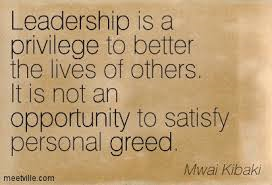Let’s start off with a few assumptions. You have worked hard to become proficient in your profession. You have spent the hard hours studying and honing your craft, and have had success when applying what you have learned in real-life situations. Let’s further assume that you have demonstrated these technical proficiencies to your supervisor and because of this, you have just been placed in a leadership position. Are you ready for this? Do you really appreciate what is being asked of you? I certainly wasn’t the first time I was placed in a leadership position. Sure, I had worked hard and studied long to become the best professional I could be. I attended the technical schools, passed all of the requisite tests, and was confident that I could lead a team through any challenge. Most of all, I enjoyed the perks of becoming a leader. The increase in salary was great and it felt good to be looked upon for recommendations when challenges presented themselves. I had even been taken under the wing of my supervisor, boasting in his words of my “great potential.”
But therein lies the rub. The only thing I had proven was that I had the potential to lead. Potential is an attribute that is hard to measure and easy to fake. I had worked hard and sacrificed a lot to get promoted, but I became overwhelmed quickly and struggled with the decision 
So here comes the biggest leadership lesson I have learned so far. You should be thankful for the opportunity that your supervisor has given you. They have entrusted you to represent them with their clients. But perhaps even more important, they have entrusted you to train, mentor, and lead other employees. These employees are asked to put faith in your ability to make them successful. Only you can turn that faith into trust. Embrace the idea that these employees have the “right” to expect things from you. Here are some of those expectations.
1. Your team should never be left in isolation. Each member will have their own character traits and you must engage them often to learn as much as you can about them. Every member of the team is an important cog of the wheel and they should be reminded of this. Keep everyone informed at all times, which includes the good and bad. Reassurances that you are there for them will go a long way in turning faith into trust.
2. Your team will expect to be held accountable. Your team will want to know how they are performing. You must provide a fair and honest evaluation of their performance. Take the initiative, set your expectations with each member, and hold them accountable. Meet and discuss your expectations often and help remediate shortcomings along the way. Do not let annual performance appraisals be the first time you discuss your expectations.
3. Your team should expect the opportunity to grow. There can be obvious budget constraints to this one, but it will not alleviate the expectation. You are skilled enough to share and teach what you know. Develop your own training plan and spend the time to “paying it forward”. Develop your team into peers and develop them into lifelong learners.
4. Your team will expect to be trusted. Encourage team members to take the initiative in the absence of direction, while never forgetting that you are responsible. Praise and reward team members in public, but correct them in private.
5. Your team should expect to be heard. One of the many lessons I learned from a great mentor of mine was simple, “you were given two ears and one mouth, so you should do twice as much listening than talking as a leader”. He would also say he learned nothing from hearing himself talk. There may be times when you will feel that you are too busy to listen to your team. Remember that your team understands this and would likely not be coming to you unless they felt it was important. They are representing you and deserve your time.
6. Your team should expect you to share your vision. Your team deserves to know the plan, how they fit in to the plan, and what is expected of them to execute the plan. All leaders have a vision, but your team will expect you to personalize that vision so they can understand how it will affect them.
7. Your team should expect you to be the object of ethics. Every action you take, every email you write, and every word you say will be directly or indirectly evaluated. You are expected to be morally good and one of high principles.
8. Your team will expect to be the object of grace. This last expectation will speak a lot to your character. Can you forgive a team member when they make a mistake? Can you lead with kindness? Your team is working hard for you and they deserve to be treated with dignity and respect.
You will be exposed to many leaders in your career. My hope is that all of them will be great, and that they will exceed your expectations, but we all are not perfect. You can help your leaders by having the personal courage to raise issues when they are not meeting expectations. You too must remember to be graceful when raising these issues. Hopefully, they too will realize the rights of those that they are privileged to lead.
As mentioned, I continue to learn alongside of you. I would love to hear your thoughts on this topic and the leadership lessons you have learned… good and bad. What other expectations should team members have of their leaders?
